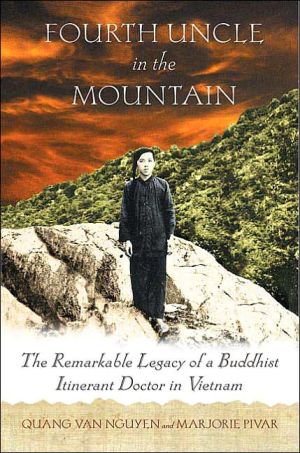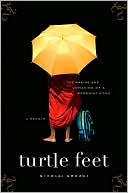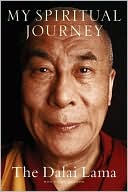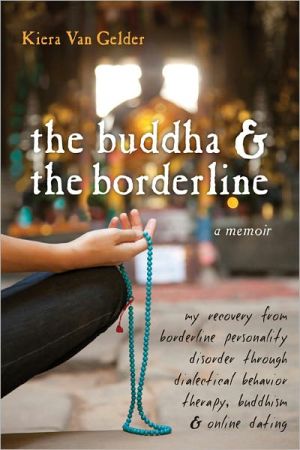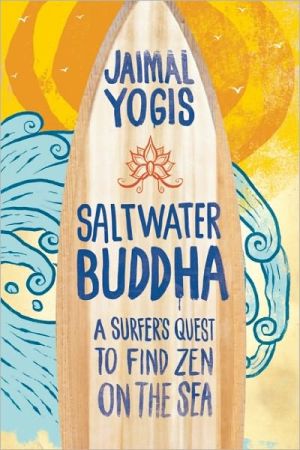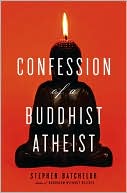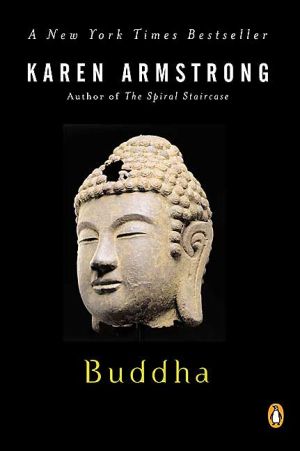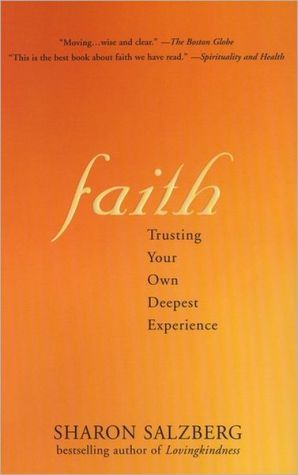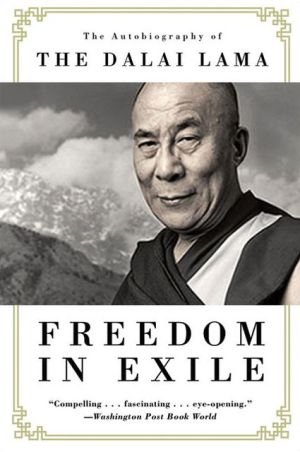Fourth Uncle in the Mountain: The Remarkable Legacy of a Buddhist Itinerant Doctor in Vietnam
Set during the French and American wars in South Vietnam, Fourth Uncle in the Mountain is the true story of an orphan, Quang Van Nguyen, adopted by a sixty-four-year-old monk, Thau, who carries great responsibility for his people as a barefoot doctor. Thau manages against all odds to raise his son to follow in his footsteps and in doing so saves him, as well as a part of Vietnam's esoteric knowledge from the Vietnam holocaust. Thau is wanted by the French regime and occasionally must flee in...
Search in google:
Set during the French and American wars in South Vietnam, Fourth Uncle in the Mountain is the true story of an orphan, Quang Van Nguyen, adopted by a sixty-four-year-old monk, Thau, who carries great responsibility for his people as a barefoot doctor. Thau manages against all odds to raise his son to follow in his footsteps and in doing so saves him, as well as a part of Vietnam's esoteric knowledge from the Vietnam holocaust. Thau is wanted by the French regime and occasionally must flee in to the jungle, where he is perfectly at home living among the animals. As wise and resourceful as Thau is, he meets his match in his mischievous son. Quang is more interested in learning Cambodian sorcery and martial arts than in developing his skills and wisdom according to his father's plan. Fourth Uncle in the Mountain is an odyssey of a single-father folk hero and his foundling son in a land ravaged by the atrocities of war. It is a classic story complete with humor, tragedy, and insight, from a country where ghosts and magic are real.
\ Chapter One \ My Father Comes for Me\ July 1959\ Cai Mon Village, Mekong Delta, South Vietnam\ One hot day in July, I looked up at the flesh-eating sun and taunted, "I can lick you with a flick of my hand. Oh, you don't believe me? Well, didn't you know that my father is the most powerful sorcerer in Vietnam? He can go to the forbidden mountain anytime he wants to. Watch out, I'm going to squash you like a lightning bug." I sucked in my breath so strong that I sucked the storm clouds closer and closer together until they banged into each other and snuffed out the fire-breather. They crashed together a second time and split themselves open like fish bellies full of roe and sprayed me with their wet bullets until they coated me in armor.\ Our ducks appeared around my legs looking for worms, but I found them first and put them into my calabash gourd. I grabbed my net and my line and took off down the path to meet my friends. It was good fishing weather.\ I was going to fish by the big bridge about half a mile from my house. It wasn't really bigger than any other bridge, it was just longer because it crossed over the widest river in Cai Mon. It was a kind of meeting place. In the blurry distance I thought I saw my father coming across the bridge. He didn't come to visit very often, only six or seven times a year.\ I ran closer and peered at him through the raindrops. He was carrying so many packages that he could barely hold on to the handrail. Someone who didn't know who he was might have been alarmed to see an old monk balancing along a single bamboo pole in the rain with so many things in his arms, but I was never afraid for my father, even though he was older than a grandfather.\ I wondered what kind of food he brought for us this time. He didn't eat much meat, but sometimes he brought sections of a roasted pig that he had received as payment for chanting at a funeral. He liked to bring me special treats we couldn't get in Cai Mon, like French butter cookies and coconut caramel and sugarcane rock candy. This time he was carrying more than usual. It was too good to be true. My mouth started watering. He called out to me, "Quang, hurry, take this before it falls into the river."\ He handed me two bamboo birdcages full of birds. In his arms were three more cages. He must have just bought them from a birdcatcher at the Cai Mon bus stop.\ "I didn't bring you any presents this time, because today I am taking you home with me."\ "Can I go with you another time? Trung's father said that Trung and I could help him on his fishing boat this week." They fished on the Mekong and sometimes on the ocean. The best part was that on the way home Trung's father grilled up all the fish, lobsters, and shrimp we could eat.\ "I don't think so, son."\ We walked in single file back to the house. We always walked in single file so people going the other way could have room to pass on foot, bicycle, or motorbike. Nobody liked to step into the tall grass just in case a Communist guerrilla or a French soldier had put a land mine there overnight. I had to walk fast to keep up with my father.\ A big canal ran through my aunt's backyard. We kept our boat moored to a tall willow tree that shaded the house. My favorite tree was in the front yard. It was a trung ca tree.\ Aunt Gioi (pronounced Yoi) used the boat to stock up on provisions for her store. It would take us a long time to get to the market because she would always go on the smaller rivers, in order to avoid the big boats and ships on the Mekong River. Aunt Gioi told me that when she was a girl in Cai Mon, it was dangerous to go on the smaller rivers because of the crocodiles. She said that the oldest and wisest ones could hold on to the rushes, and whack you right out of your boat with their tails and gobble you up.\ Even though Aunt Gioi had enough money to have a French-style house, she built a small thatched house with a dirt floor. You could say the dirt floor was one of the fanciest things about her house, because she had it prepared with sea salt and packed down very hard to keep the insects out. It was the color of ground coffee. Your feet would get muddy if they were wet. My aunt didn't mind me playing on the floor and getting my clothes all dirty even though she made them all and washed them herself.\ Although she could have hired help, she didn't trust anyone in her house. She used to have people doing the housework and minding the store, but she was robbed many times. What they were really after were her gold teeth. All but four of my aunt's teeth were made of gold. She would take them out after meals to wash them. Every night before going to bed, she hid them carefully in case someone was looking in the window. She was afraid someone might try to sneak in while she was asleep and steal them right out of her mouth.\ My aunt had no children of her own. After her husband died, she adopted a two-year-old orphan girl. When her daughter was eighteen years old, she robbed my aunt. The girl knew where my aunt kept her valuables buried under the floor. One day she came with her boyfriend, and they dug up all her money and jewelry. My aunt forgave her, but the girl kept stealing money until my aunt had to tell her to leave. That broke my aunt's heart because her daughter never came back home.\ My aunt was seventy-three, but still strong like my father. Even though she was old, she still liked to look beautiful. Her husband had been a Catholic with a good job in the government. My aunt got used to being with French people and wearing French makeup. She colored her hair black and even wore a hairpiece to fill out her skimpy bun. If she ran out of makeup, she would lick red incense paper and rub it onto her cheeks and lips.\ "What happened to the trung ca tree?" My father stopped short and was staring in disbelief at our missing tree. It was a shocking sight. Our house looked as if it was missing a vital organ. Our giant trung ca tree had been reduced to a stump about two feet high and four feet wide.\ My aunt was always spanking me for climbing that tree, but I did it anyway. She didn't understand that tree was my mother, who would never drop me. I could climb to the top on a moonless night in the fog. I felt her strong, caressing arms against my body as I slid along her bark like a slippery eel so fast that she could never catch me. I was lucky to have a trung ca tree for my mother, because she was the wealthiest tree of all. She had many hidden chambers where she hung her jewels for me to eat all year round.\ My trung ca tree was the tallest in our neighborhood. People treasured them, because they provided the thickest shade. I could sit at the top and throw stones at our neighbors' thatched roofs to warn the nestling mice that a green snake might be approaching. I could see the canals being sucked into the great dragon river and then see the water rising up again, later in the day, filled with more fish. From up there, I could see the blue smoke of the cooking fires and smell which of our neighbors were having fish for dinner and which of them were having just rice.\ One evening I came home after helping our neighbors with their rice harvest and saw my tree sprawled across the yard. At first I thought it had been hit by a bomb. Sometimes the French hit our houses by mistake. They were bombing the jungle all around Cai Mon to kill the Communists who were hiding there. The Communists had already kicked the French out of the north and were trying to get us southerners to finish the job. But southerners are different; we like religion more than politics.\ I screamed for Aunt Gioi, because I thought she was dead. She came running out of the kitchen clutching a handful of noodles. She looked at me and said sadly, "You climbed too high, Quang, I told you many times." It was true. She told me every day and I never listened.\ I didn't cry when I saw Tien, my favorite storyteller, lying in his blood after a bomb hit his shelter. But when I saw my tree-mother's face pressed into the dust, straining to turn her head for a breath of air, the tears swarmed down my face like fire ants and bit into my sunburned cheeks.\ I made contact with her contorted limbs and tried to find my place again. She couldn't hold me anymore. I turned my eyes respectfully away from her splayed limbs.\ It took many days for the neighbors to cut her up and carry her away. I didn't ask where they were taking her.\ "Quang, what happened to the tree?" my father repeated.\ "Aunt Gioi gave it to the neighbors, because she was afraid I would fall."\ My father set the finches, canaries, kingfishers, and lorikeets down under the jackfruit tree. Birdcatchers catch all kind of birds and sell them to people who roast them to eat. The rain had stopped and the mists rose up from the puddles like the spirits of fallen soldiers. My father's voice wafted through the muggy air like incense. He always chanted for the birds before letting them go. He prayed for them to find their mates again and for Buddha to keep them safe.\ I interrupted, "Ba, If I go with you, when will I come back home to Cai Mon?"\ My father took me by my shoulders and looked into my eyes and said, "When you were just a baby and I couldn't take care of you by myself, Aunt Gioi and I had made an agreement that you would live here with her until you were old enough to begin your education. You are nine years old now. It is time for you to begin your spiritual training and to learn about medicine. One day, you will become a healer and a medical doctor as your grandfather was. As I am. You will be able to help many people. It won't matter if you lose your house and all your money in the war. You will always be able to make a living with the tools that are inside of you, with your hands and your mind, with the plants that grow everywhere. From now on, you will live with me so I can teach you. We can always come back to visit."\ He reached into one of the cages, and I heard my fluttering heart. His big hand fished around and came out with a golden canary. He drew a magic symbol in the air over the bird and whispered, "May Buddha guide you home."\ My aunt came outside, and I took off like the bird. My legs carried me away like wings. I watched to see where they would bring me. Before I knew it, I was up in my neighbor's trung ca tree.\ I looked down at Hoa's garden and fish pond. She was one of my best friends. I liked to go to her house to use her toilet. Aunt Gioi had an outhouse in the backyard. During the rainy season, my bare feet would get sucked into the slimy mud mixed with duck and chicken droppings. The smell of the mud and the outhouse used to make me feel sick. When we had guests at our house, my aunt would give them a shovel so they could go into the forest to do their business instead of visiting our outhouse. I begged my aunt to let me use the shovel, too, but she would not let me. She knew that I wouldn't bother to dig a hole every time.\ Hoa had a fish pond toilet. Some people raised a kind of fish that likes to eat human waste. These fish are big and have a lot of meat. They have pink flesh like salmon but without scales, and they taste like shellfish. You have to climb up a bamboo ladder and step over a little stall onto a wooden platform that reaches out over the pond. There are two boards to place your feet while you squat and aim for the middle. The fish churn the water like angry sharks fighting to eat, but I bomb-blasted many fish right out of the water.\ From up in the tree, I called out for Hoa, but my father found me first. There was a switch in his hand. Aunt Gioi had never used a switch on me. He stalked menacingly under my tree like a hungry tiger. In a calm voice, he told me that he wouldn't hit me if I came down right away. I didn't respond. This wasn't my father. It was just a crazy old man with a wet beard dressed in a patched-up old shirt wearing strange banana-leaf shoes. This wasn't my father, who could heal both the living and the dead, who spoiled me with money and presents, and who hugged me and told me stories about living in the jungle with monkeys, pythons, and tigers. This was a funny-looking person with no neck. I looked down at his turned-up face, a matted river otter. It couldn't be my father. I was overcome by a strange feeling, like the time I was bewitched by spirits one day when I was walking to my friend's house on the outskirts of our village.\ For some reason, it was taking much longer to get there. I didn't understand what was happening, because I saw exactly where I was and I knew how much farther I had to go.\ All the same, it seemed as if I would never get there. My legs started to ache as if I had been walking for hours. I tried to talk to some people, but they didn't see or hear me. That's when I realized the spirits were controlling my mind.\ I remembered my father's words: "All you have to do to break the spell is to turn around and look between your legs in the direction you were heading." It worked. My village vanished, and I found myself at the far end of a rice paddy, headed into the jungle. I had no idea where I was, but I ran in the opposite direction until I came to a footpath and then to a house.\ A man took me home in his boat. I was very lucky the ghost was invisible to me, because if it had assumed a human form and had offered me candy I wouldn't have been able to resist. Once you taste their food, you can't break the spell yourself. You would never come back unless somebody found you.\ When I got home, there was already a search party out looking for me. Usually if a child was missing, people would think it was either a grenade or a ghost. In Cai Mon we had both.\ When I came down from the tree, my father whipped my bottom one time. He said the next time I would get two.\ It wasn't as if I'd never been caned. At school my teacher hit me a lot. I had gotten off to a bad start, and he didn't like me. During my first few weeks of school, someone stole my book bag. I was too ashamed to tell my aunt, so I carried my books to school. This was my downfall, because children in my village had to bow to every adult who said good morning to you. You had to fold your arms across your chest and bow your head. Well, there was no way I could keep up with the other kids, because every time I put my books down to bow, my papers would blow away. I was caned first thing every morning for arriving late.\ One day I decided to look down at my feet the whole way to school so as not to see any adults. If they talked to me, I would pretend that I had just stepped on a thorn. This didn't work, because someone told on me and I got hit anyway.\ My father's switch hurt my pride more than anything my teacher ever did to me. The sting propelled me back to the house, where I found my aunt sitting on the stump of my tree, her face buried in her hands. My father told his sister not to bother packing my clothes, because we were leaving right away. She got up to hug me. I felt so sad to see her cry. My father promised his sister that he would bring me back every month to visit. Then my aunt reached into her pocket and gave me a shrew stone. I never knew she had one.\ Shrew stones were the luckiest things you could find around our village. Shrews can't see well; that's why the babies form a chain behind the mother, each one holding on to the tail of the one in front. At night the mother shrew carries the stone in her mouth to light the way. I had seen the green light scooting across the floor in my aunt's house. I don't know where the shrews find the stones, because you can dig forever and never find a single rock. In the delta there is only river silt. It is very difficult to get a shrew stone away from the mother shrew. She will put it down to eat, but she is very mindful of her stone, because other shrews will sneak up and try to steal it. Some people trap the shrews to get their stones, but it only weakens the power of the stone.\ I told my aunt that I wanted her to keep the stone for me, because she had the best hiding places. I wanted the stone's magic to keep her company, especially at night. In Vietnam, we have two kinds of pillows: one to rest your head and one long round one for hugging. When I was small, my aunt told me that she didn't need her hugging pillow anymore because she had me.\ It took an hour to walk to the highway where the bus stopped. We could walk side by side most of the way. My father tried to cheer me up by handing me a tangerine, but I didn't take it.\ From Cai Mon, it wasn't really a long way to Ben Cac, where my father lived, but it took about six hours or more, because we had to take three buses and two ferries, and then we had to walk some more.\ The minivan bus pulled up, and as usual it was packed with people, animals, and things. I didn't like to ride on the bus, because it was so hot and smelly. It always took a long time to load everybody on and off while the conductor packed or unpacked the roof. The conductor told us to get on the bus even though all the seats were taken, and he made people move over to fit us in. He wasn't nice about it, either; bus drivers are really gangsters.\ Copyright © 2004 by Quang Van Nguyen and Marjorie Pivar. All rights reserved.
\ From the Publisher\ "[A] charming book . . . the volume contains a wealth of information about Vietnamese history and culture … an adventure book strung through with passages on selflessness and mindfulness, this volume is an excellent choice for readers interested in Vietnam and Buddhism."--Publishers Weekly\ "This is a magical, mesmerizing story; a complicated tale of Vietnam's anguished history, of healing and faith, and of a young boy's miraculous coming of age."--Ken Burns, director of Jazz and The Civil War "When I had read the first few chapters of this engrossing biography, I had stopped a dozen times to recall my times in the Delta and the towns and villages that are mentioned in the book. By the time I had finished - I wanted to go back…. A thoroughly enjoyable read."--Captain E.G. Adams, The Air America Log\ "Fourth Uncle in the Mountain is a great story about two simply good men. It is told simply, but simplicity should never be mistaken for a lack of emotional complexity, intellectual refinement, or overwhelming humanity. It is all that."--The Asian Reporter\ "…an unputdownable tale, told in an intimate, oral style with an unassuming wisdom, a thrilling, Castaneda-like search for knowledge as well as a moving tribute to the most profound love between a father and son."-- Nick DeMartino, University Bookstore, Seattle (selected as University Bookstore's 2004 Book of the Year)\ \ \
